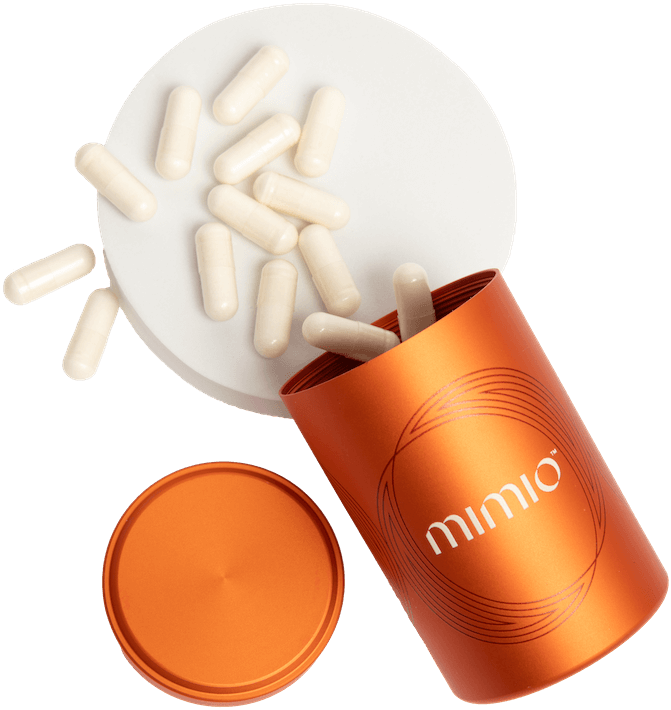What To Drink While Fasting: Guide To Optimal Hydration
Fasting can do wonders for your health, but knowing what to drink during your fasting window is key to success. Hydration is a crucial part of fasting that often gets overlooked, but staying hydrated during a fast can help you feel more energized, reduce hunger pangs, and support your body’s natural detoxification processes so that you are truly maximizing the benefits of fasting. So, what should you drink while fasting? Let’s dive into the best beverages to keep you hydrated and support your fasting goals.
Water: Your Best Friend
Water is your go-to beverage while fasting. It's calorie-free and essential for keeping your body hydrated. Drinking plenty of water can help prevent headaches, dizziness, and fatigue that sometimes accompany fasting. So how much fluid does the average, healthy adult living in a temperate climate need? According to the Mayo Clinic, “The U.S. National Academies of Sciences, Engineering, and Medicine determined that an adequate daily fluid intake is about 15.5 cups (3.7 liters) of fluids a day for men and about 11.5 cups (2.7 liters) of fluids a day for women."¹ Here are some tips to optimize your water intake:
- Stay Ahead of Thirst: Don’t wait until you’re thirsty to drink water. Aim to sip regularly throughout the day. Water bottles with progress lines are great motivators
- Add Some Zest: A squeeze of lemon or lime juice can add a refreshing twist to your water without breaking your fast
- Keep water closeby and easily accessible: Traveling for the day? Remember to bring adequate fluids. Spending time outside or doing physical activity? Drink more water to replenish lost fluids, especially during a fast
Herbal Teas: Flavorful Hydration
Herbal teas are another excellent option for fasting. They are typically calorie-free or low-calorie and can provide a variety of flavors to keep things interesting. Some great choices include:
- Green Tea: Known for its antioxidant properties and metabolism-boosting effects.²
- Peppermint Tea: Aids in digestion and can help soothe an upset stomach, potentially caused by hunger pangs.³
- Ginger Tea: Can help reduce inflammation and support your immune system.⁴
Black Coffee: Fasting-Friendly Perk
Coffee lovers rejoice! Black coffee is a fasting-friendly drink that can give you a boost of energy and help suppress appetite. However, there are a few things to keep in mind:
- No Additives: Stick to black coffee without sugar, cream, or milk to keep it calorie-free.⁵
- Regular vs. Decaf: Regular coffee contains caffeine, which can enhance metabolism and appetite suppression, but too much caffeine can lead to dehydration and jitters. Decaf coffee, while lower in caffeine, still provides antioxidants and health benefits, making it a good option for those sensitive to caffeine.⁶
- Moderation is Key: Too much caffeine can lead to dehydration and jitters, so limit yourself to 1-2 cups per day.⁷
Electrolyte Drinks: Balanced Hydration
When fasting, especially during longer fasts, you might need to replenish electrolytes. Electrolyte drinks can help maintain your mineral balance and prevent dehydration. Look for options that are low in calories and free from added sugars. Here are some natural ways to get electrolytes:
- Coconut Water: Contains natural electrolytes but be mindful of the calorie content
- Homemade Electrolyte Drinks: Mix water with a pinch of salt, a squeeze of lemon, and a splash of coconut water for a cost-effective, at home DIY electrolyte boost
Bone Broth: Nutrient-Rich Option
Bone broth is a popular choice for those following longer fasts, such as intermittent fasting. It’s rich in minerals and can help support gut health. However, it does contain calories, so it’s best reserved for longer fasting periods where a small caloric intake won’t disrupt your goals.
Drinks to Avoid While Fasting
Just as important as knowing what to drink is knowing what to avoid. Certain beverages can break your fast or counteract its benefits:
- Sugary Drinks: Avoid sodas, fruit juices, and other sugary beverages that can spike your insulin levels and break your fast
- Alcohol: Drinking alcohol during fasting can lead to dehydration and can disrupt your fasting state
- High-Calorie Drinks: Steer clear of smoothies, protein shakes, and other high-calorie drinks that can interrupt the fasting process
If you’re looking to realize the benefits of fasting without needing to fast, or to supercharge an existing fast , consider trying Mimio’s Daily Biomimetic Cell Care. Mimio’s formulation is scientifically designed to deliver the cellular health benefits of a 36 hour fast which helps you maintain your health and wellness even on non-fasting days. Learn more about how Mimio can support your fasting and overall health goals here.
Conclusion
Hydration is a crucial part of a successful fasting regimen. By choosing the right beverages, you can support your body’s natural processes, maintain energy levels, and make fasting more manageable - all while ensuring your fast is not interrupted. Remember, the key to effective fasting is not just about what you don’t consume, but also about what you do. So, drink up, stay hydrated, and enjoy the benefits of your fasting journey.
References
¹ Mayo Clinic Staff. Water: How much should you drink every day? Mayo Clinic. Available at: https://www.mayoclinic.org/healthy-lifestyle/nutrition-and-healthy-eating/in-depth/water/art-20044256. Accessed June 19, 2024.
² Kim, S., & Jeon, J. (2018). Green tea catechins and their health benefits. Critical Reviews in Food Science and Nutrition, 58(9), 924-936.
³ McKay, D. L., & Blumberg, J. B. (2006). A review of the bioactivity and potential health benefits of peppermint tea (Mentha piperita L.). Phytotherapy Research, 20(8), 619-633.
⁴ Bode, A. M., & Dong, Z. (2011). The amazing and mighty ginger. Herbal Medicine: Biomolecular and Clinical Aspects, 2nd edition. CRC Press/Taylor & Francis.
⁵ O'Keefe, J. H., Bhatti, S. K., Patil, H. R., Dinicolantonio, J. J., Lucan, S. C., & Lavie, C. J. (2013). Effects of habitual coffee consumption on cardiometabolic disease, cardiovascular health, and all-cause mortality. Journal of the American College of Cardiology, 62(12), 1043-1051.
⁶ van Dam, R. M., & Hu, F. B. (2005). Coffee consumption and risk of type 2 diabetes: a systematic review. Journal of the American Medical Association, 294(1), 97-104.
⁷ Higdon, J. V., & Frei, B. (2006). Coffee and health: a review of recent human research. Critical Reviews in Food Science and Nutrition, 46(2), 101-123.


